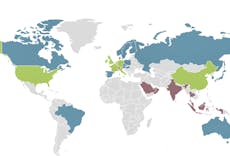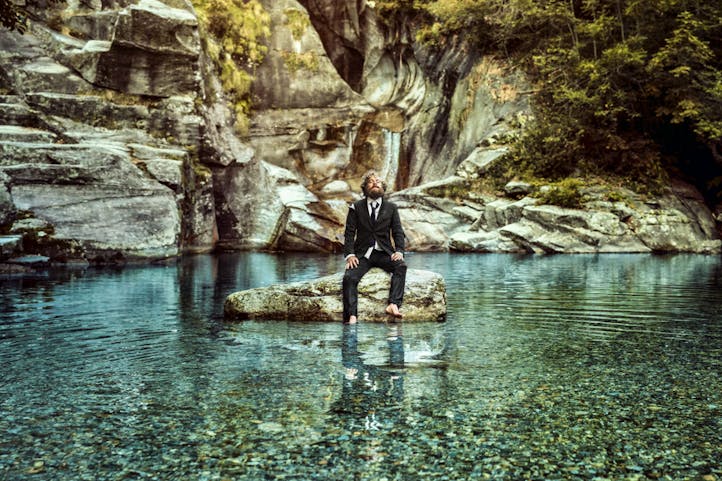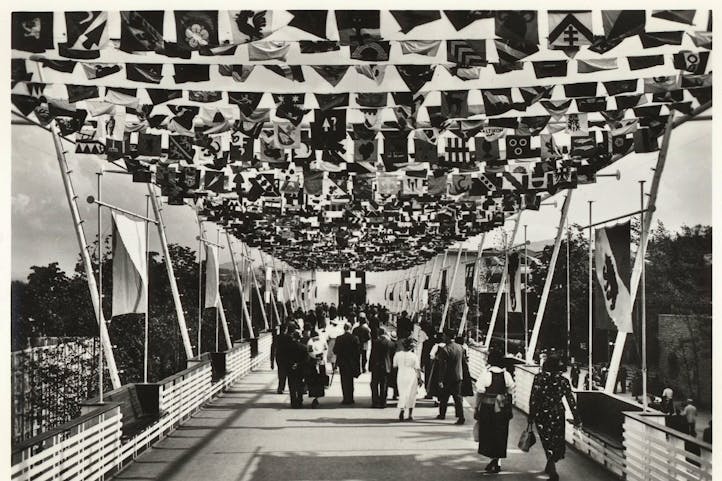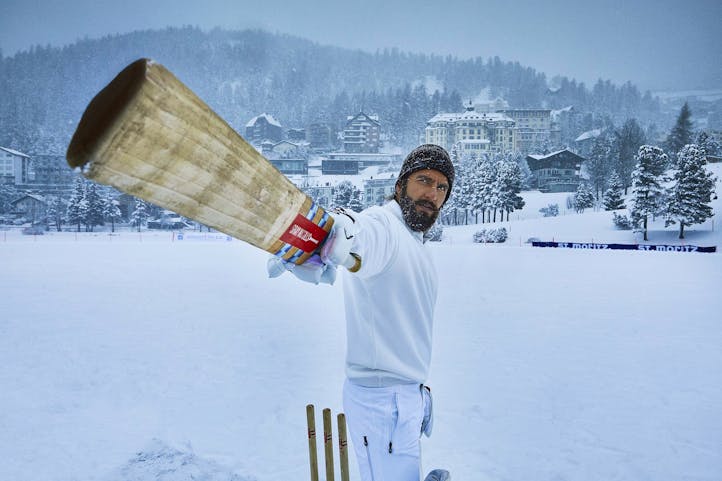Find out more about:
Source: Federal Statistical Office (FSO)
On 15 January 2015, the Swiss National Bank discontinued its minimum exchange rate of CHF 1.20 to the euro. This dealt a heavy blow to the Swiss tourism industry, which was already in a state of crisis. Taken together with structural problems, terrorist attacks, the refugee situation and the economic crisis that were shaking Europe, the persistent downward trend in overnight hotel stays since the 2008 financial crisis intensified. The decline in guests from the 16 eurozone countries alone was around 28% between 2009 and 2017.
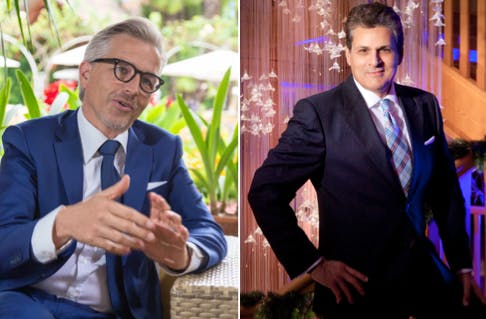
Innovative hoteliers (from left): Diego Glaus, Albergo Losone, Losone / Philippe Attia, Chalet RoyAlp Hôtel & Spa, Villars-sur-Ollon
Price increases of overnight stays in Swiss hotels of up to 20% at times in the wake of the discontinuation of the exchange-rate floor also had an impact on the booking behaviour of Swiss guests, however, as demonstrated by the example of Hotel Albergo Losone in Losone: “We generate part of our revenue with the weddings and large-scale events of our Swiss guests. The strength of the franc prompted a lot of them to switch their venue to Italy during this period. In 2015, we posted a 4% fall in revenue compared to the previous year”, explains Diego Glaus, who has been managing the hotel in Ticino since 1995.
Decline in the mountain regions
The Alpine regions, which are traditionally the destination of European guests, were even worse hit by this development: for 2009, the Federal Statistical Office recorded just under 17.4 million overnight hotel stays. Between 2009 and 2015, the decline in the mountain regions was 11.7%. Difficult conditions for hotels such as Chalet RoyAlp Hotel & Spa in Villars-sur Ollons, which opened in 2008 and is a popular destination for French and Belgian guests: “2015 and 2016 were a challenge for us. Russian and European guests, from France in particular, simply didn’t come”, recalls hotel manager Philippe Attia. “The discontinuation of the minimum exchange rate had a drastic impact on the hospitality and tourism industry. It led to several room cancellations in our hotel.”
Cities, in contrast, had good news to report. They reported rises of 14.5% from 2009 to 2015. One key reason for this was business tourism, which is less affected by exchange-rate fluctuations.
Crisis drives innovation
Tourist service suppliers have become increasingly aware that the only way to reduce their dependence on the economy, weather and currency is by coming up with innovative offers and products: for example, Chalet RoyAlp Hotel & Spa decided to remain open all year round. Its strategy was to focus on new markets and on the development of attractive packages to drive up reservations during the shoulder season. “Social media played a major role in our marketing campaign aimed at tapping into new markets”, comments Philippe Attia. Hotel Albergo Losone enjoyed success by offering creative discounts such as nice weather insurance, a points offer and a three-generation discount. “On top of this is our clear positioning as a family hotel operating as part of a group of seven other hotels under the Premium Swiss Family Hotels brand, meaning we can benefit from cross-marketing effects. Our gross revenue registered a year-on-year increase of 6% in 2016, up to 7% in 2017”, explains Diego Glaus.
The innovation drive was evident across the industry – at cable cars and mountain railways (e.g. the Inside Laax app, Zermatt Skiguide app or Magic Pass) and in the regions (e.g.Ticino Ticket). Switzerland Tourism ST supported tourist service suppliers in developing products that reflect current travel trends (Grand Tour of Switzerland) or innovations in the digital arena: this includes the My Swiss Experience and Alpine hut finder platforms rolled out in 2017 and the new mobile version of MySwitzerland.com. And the First Ski Experience, which was offered for the first time in winter 2016/2017.
Turnaround achieved in Europe
This raft of innovative measures and projects had a positive impact on 2017 overnight hotel stay statistics: compared to the previous year, the number of overnight hotel stays from all markets was up by 5.2% to 37.4 million. The eight tough years faced by Swiss tourism have come to an end.
Growth from the 16 eurozone countries was up by 2.5% year-on-year. Although Swiss tourism has experienced a 40% decline in hotel guests on a cumulative basis in its most important foreign market, Germany, since 2008 until 2017, this important visitor group is also undergoing a turnaround. This is shown by moderate growth in Germany of 1.1% (compared to 2016).


